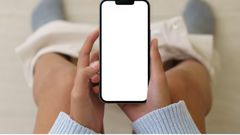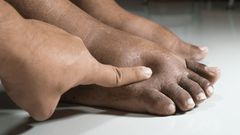Across Africa, mental health conversations have started gaining traction, but among young people in South Africa—and increasingly across Nigeria, Ghana, and other West African countries—these issues are becoming impossible to ignore. The statistics are startling: over 60 percent of South African youth reportedly face significant mental health challenges, according to recent research from the South African Depression and Anxiety Group. And while the specific numbers may differ slightly in Nigeria and Ghana, the sense of urgency resonates everywhere. Stigma, limited resources, and a culture of silence often make things worse.
In tackling these challenges, a bold campaign from Sandton City in partnership with the Riky Rick Foundation has begun turning positive words into real-world impact. The initiative seeks to rally the public to uplift their peers by sharing supportive messages and reminders of hope—an approach that could be inspirational for mental health advocates across Africa and beyond.
What Is the Words That Heal Campaign?
At its core, Words That Heal is an innovative mental health movement using the power of collective voices. South Africans—and by extension, others across Africa—are invited to record voice notes with uplifting messages. These submissions will be woven together into a unique “song of hope.” Once completed, the track is set for release on popular streaming platforms, with proceeds supporting the Riky Rick Foundation’s ongoing efforts to offer free therapy to young people.
This foundation was set up in memory of the late South African rapper Riky Rick, who remains an inspiration to many young Africans, including Nigerian and Ghanaian fans of African hip hop and art. The Foundation’s approach, called “artivism,” combines creative expression with activism, addressing mental health issues head-on. The blending of music, emotional storytelling, and active support offers an alternative to silence—and is a call to action for African communities to embrace open conversations about wellness.
How to Get Involved
For anyone who has ever wished they could help a friend or stranger get through a dark moment, this campaign offers a practical way to do just that. Participants are encouraged to record a heartfelt voice note—a word of affirmation, encouragement, or wisdom—then submit it via WhatsApp. The deadline and number will be publicised on the campaign’s official channels. If your words are selected, they will become a permanent part of the song—a living testament to Africa’s power of community, resilience, and empathy.
Nigerians, in particular, are known for creative expression and solidarity during tough times. “Our music, our stories, and even our slang can be a tool for healing,” says Lagos-based youth advocate, Adaora Michael. “Imagine hearing voices from across the continent coming together to say, ‘You are not alone.’ That can be life-changing.”
What Happens Next? Expanding the Campaign During Mental Health Month
The initiative will reach a new level during Mental Health Month in September and October, when Sandton City will host an in-person event. Visitors will have the chance to listen to the final song and revisit tracks from Riky Rick’s last album, transforming the venue into a space for tribute, reflection, and unity. A pop-up retail shop will also feature, offering exclusive merchandise designed in collaboration with visual artist Samurai Farai. Guests can personalise merchandise onsite, creating mementos that reflect their own journey or support for loved ones facing mental health challenges.
All proceeds from sales—along with contributions from sponsors—will be directed to mental health projects and youth empowerment programmes championed by the Foundation. This blend of music, retail, and awareness represents a multi-layered approach to mental health advocacy that could be replicated in cities like Lagos, Accra, and beyond. According to experts like Dr. Ifeanyi Obika, a clinical psychologist based in Abuja, “Integrated campaigns like this not only provide direct support but help shift public perception, making it easier for young people to seek help early.”
Why This Campaign Matters—for Africans and the World
The Words That Heal movement is more than just a song—it’s a symbolic break from the stigma that often surrounds mental health in Africa. It builds spaces for connection, honest storytelling, and above all, healing. Riky Rick, whose words still inspire many—“Please believe in young people. Give them as many opportunities as they need to prove themselves”—serves as a figurehead for this cause, promoting both hope and action.
While mental health struggles are a global issue, their effects are acute in regions with rapidly growing youth populations, high unemployment, and trauma from violence or poverty. According to a 2021 UNICEF study, close to one in seven Nigerian youth have suffered from some form of mental distress severe enough to need support—yet less than 10 percent have access to professional help. The factors are varied: from cultural taboos and religious misconceptions, to structural obstacles like cost and a lack of specialists. Ghana and other West African neighbours face similar barriers, with government health budgets allocating only a tiny percentage to mental health services.
But the drive for change is gathering pace—spurred on by grassroots advocates, musicians, comedians, and even TikTokers who now openly discuss anxiety, depression, and self-care. In Nigeria, “social media movements have empowered more young people to express vulnerability,” says Abuja-based journalist Ngozi Okafor. “Campaigns like Words That Heal show that healing can be communal—and African creativity is at the core of finding solutions.”
- Statistically, Africa’s youth bulge means urgent solutions are needed: By 2030, young people will make up over 40% of the population in many West African countries, increasing the pressure on schools, clinics, and communities to prioritise wellness.
- Local NGOs—including Nigeria’s Mentally Aware Nigeria Initiative and Ghana’s MindFreedom—say culturally-tailored outreach like music and art are critical in breaking cycles of silence and self-stigma.
- There are strong calls for government investment: “Therapy must be as accessible as malaria medicine,” says Yaw Mensah, a mental health advocate in Accra.
Challenges and Looking Ahead
Of course, impactful campaigns can only go so far. Experts caution that, without expansion of youth-friendly clinics, telehealth, and school-based counselling, the treatment gap will persist. Additionally, some critics note that corporate sponsorship alone cannot replace state-funded mental health services—while others urge that campaigns must also address intersectional challenges, from substance abuse to gender-based violence.
Still, initiatives like Words That Heal demonstrate the power of collective action. From Lagos to Johannesburg, Accra to Abuja, the chance to take part in a continental song of encouragement is a meaningful step forward. In doing so, the campaign sends a clear message: every voice matters, and together, Africans can redefine how mental health is understood and supported.
Do you believe creative storytelling and music can help break mental health stigma in Nigeria and across Africa? What real-life stories or ideas do you have for boosting mental health awareness in your community? Drop a comment below and join the conversation—your words could inspire someone who needs hope.
Let’s keep this conversation going! Your opinion matters—how can we make mental health support more accessible in our communities? Drop your thoughts below, and don’t forget to follow us for updates on the latest wellness movements and positive stories from across Africa.
Have a story to share or sell—about mental health, social change, or anything inspiring? Reach out to us at story@nowahalazone.com to get your experience published or discuss story opportunities. For tips and feedback, contact us at support@nowahalazone.com.
Stay connected with the NowaHalaZone community! Follow us on Facebook, X (Twitter), and Instagram for real-time updates, stories, and discussions that matter to you.










